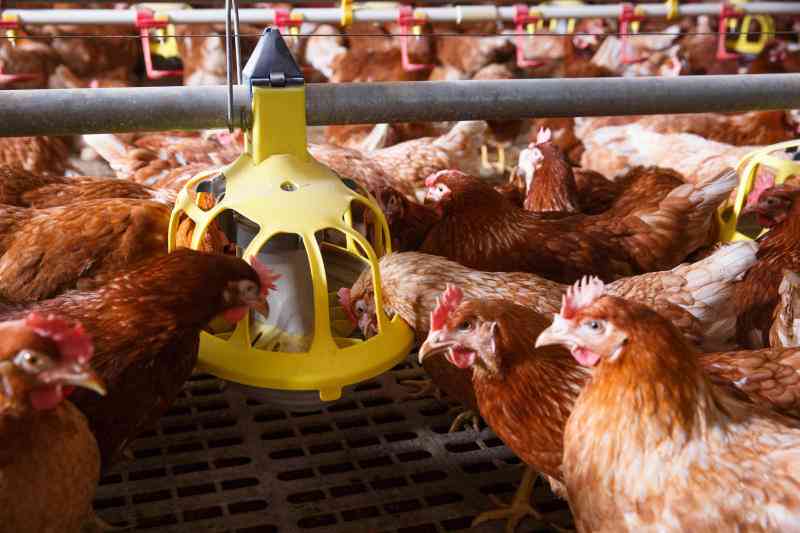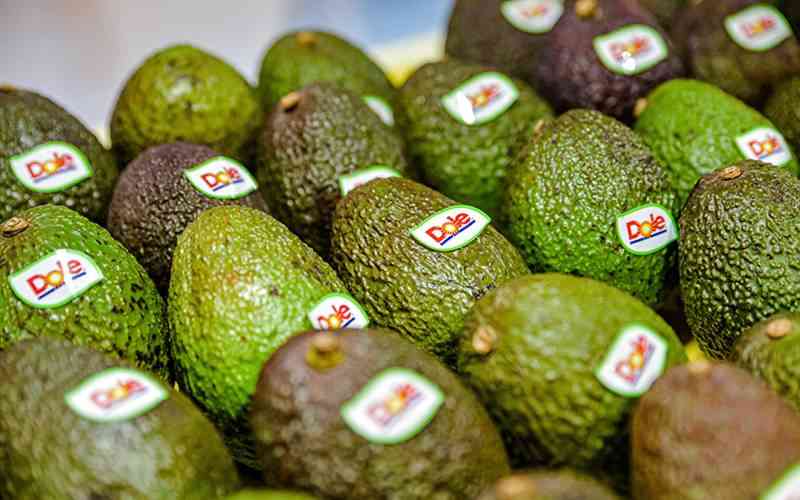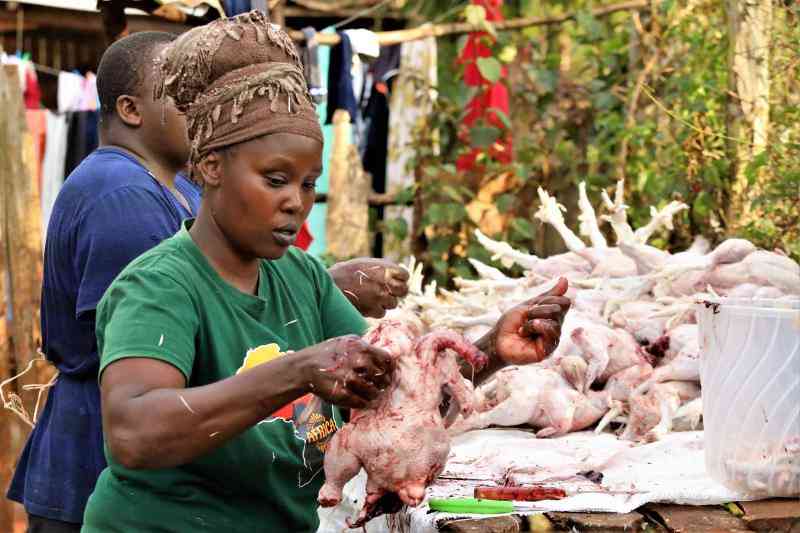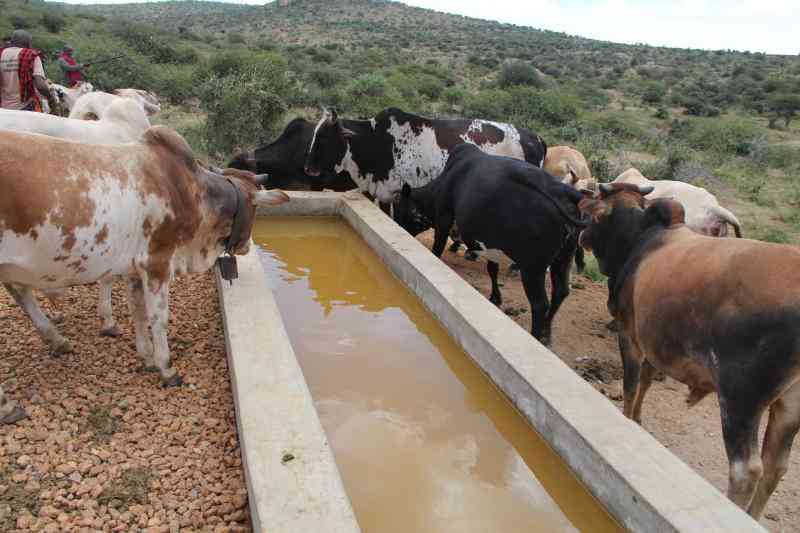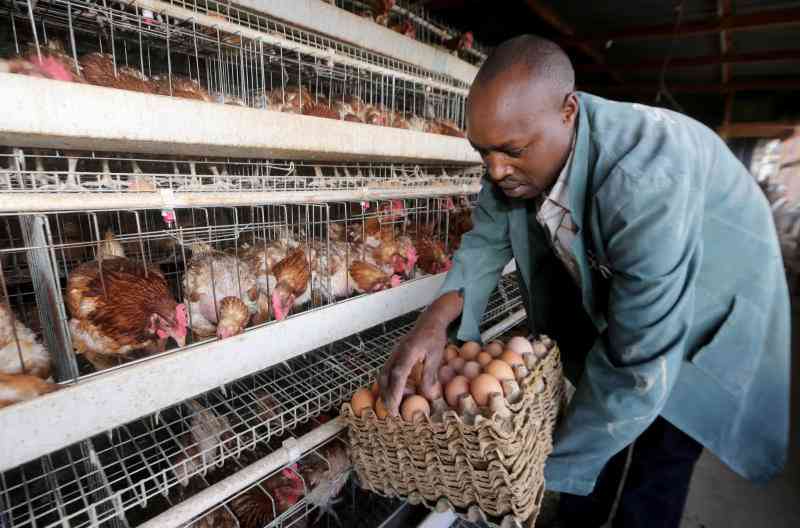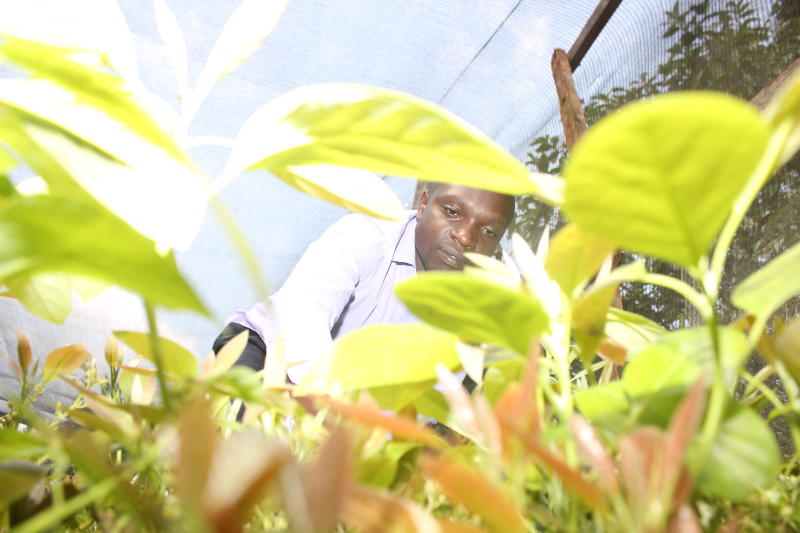
Recently, a Facebook post of a farmer advertising seedlings in a popular page caused an uproar as members smelt a rat. In the November 6 post, the farmer in question was advertising seedlings of pixie oranges, kiwi fruits and red apples and he was promising that he can deliver to those who are interested.
A reverse image search by Smart Harvest, however, found that one of the https://cdn.standardmedia.co.ke/images with succulent mangoes had also been posted in 2016 on a local news website.
Another image with red apples had first appeared on a Russian website in 2017. Upon a quick research, it turned out that the farmer was dealing in sale of fake seedlings.
What Kephis says
A spot check by Smart Harvest has shown a new wave where certain corrupt individuals are capitalising on the ignorance of farmers to sell counterfeit and uncertified seeds to farmers.
Hiding behind fake accounts and use of google https://cdn.standardmedia.co.ke/images to dupe unsuspecting farmers are among tactics that cons are using to sell counterfeit seeds and seedlings, authorities warn.
Kenya Plant Health Inspectorate Services (Kephis) senior seed inspector Stellamaris Mulika agrees that the issue of cons selling counterfeit seeds was on the rise in Kenya and the suspects are thriving on social media with hidden identities.
“We have received numerous complains from farmers who were duped into buying counterfeit seeds and seedlings. But when we make a follow up, we find that most of these sellers don’t even have a physical location but only operate on social media using fake accounts. Tracking such cons becomes difficult,” says Ms Mulika.
The tactitics
The seed regulator says some seed companies are also increasingly relying on the highly unregulated social media platforms to market their produce.
For clarity, seeds are planted in the ground to grow new plants while seedlings are actually young plants, already sprouted from the seed.
The Africa Seed Access Index (TASAI) says 17 reports of fake seed sales were made in 2017.
However, according to the 2018 report, the figures were likely to be higher as the industry is highly unregulated.
“Seed companies indicated that they received 17 reports of fake seed sales involving forgery of packaging materials in 2017. This figure is likely to be an underestimate, as most cases of fake seed sales are not officially reported since the trade is illegal,” read the TASAI report.
The report revealed that registered seed companies were also working with cons to sell counterfeits to farmers. Their trick involved forgery of packaging materials.
“Some seed companies collude with conmen/unethical businessmen to produce packaging materials in excess of the orders they receive from seed companies. The excess packaging materials are then used by conmen to package and sell uncertified seed,” read the report.
The fake versus genuine
Unsuspecting farmers were therefore likely to trust seed they bought in authorised materials. Seed sold as something other than it is - the wrong variety or with the wrong characteristics, sometimes marketed with a falsified certificate of authenticity - can make the difference between a bumper crop and a failed harvest, a Reuters report says.
So, how can farmers differentiate fake seed peddlers from genuine ones?
Mulika warns farmers to be on the lookout for people who only sell their seeds at the start of the planting season. “Most cons start advertising their fake seeds towards the start of the planting season. Don’t fall for this trap. Only buy your seeds from agrovets that sell their produce all year round,” says Mulika.
Cheap offers
Seed suppliers who sell their produce at lower prices than other suppliers are also likely to be cons, she says.
The seed regulator has also nabbed Chinese nationals who were reported to illegally import seeds into the country which they sold at a local market.
Malika did not give details of the case which she says was in court.
“I am not at liberty to comment on the Chines saga as it is still in court. But we have the challenge with our porous border where materials are sometimes sneaked in without our knowledge. The seeds that are sneaked in are not always safe for local farming activities,” says Malika.
She adds: “If the seeds are not examined to pass the phytosanitary tests, they pose certain environmental dangers and they may introduce new diseases and pets or even invasive plants to our farms.”
Seed companies that have been licensed to operate have their certificates hanging somewhere in their stores.
Mulika urges farmers to always buy from stores that have these certificates.
Eliminating cons
To ensure that counterfeit seeds do not find their way on the Kenyan market, Kephis recently introduced the sticker label that allows farmers to report seed quality problems directly to the seed regulator.
“The sticker label has been effective in stamping out fake seed. Each packet of seed has a unique code which a farmer can send to a Kephis system for verification of particular seed materials,” says Mulika.
Efforts to eliminate cons in seed sector have, however, been thwarted by shortage of qualified inspectors, lack of information by farmers and technology.
It is estimated that there are 143 registered seed companies in Kenya being monitored by just about 47 seed inspectors.
TASAI statistics indicate that at 580, South Africa has the highest number of seed inspectors followed by Zambia at 118 and Zimbabwe at 60. There is only one seed inspector in Liberia, five in Sierra Leonne and seven in Burundi.
Be vigilant
But it is farmers who are the most when they fail to report their experiences at the hands of cons.
“Farmers just keep quiet. Some of them report when it is too late and when the dealers have already sold all their stock and that time we have nothing to pin them down with,” says Mulika.
Use of poor quality or uncertified seed costs African farmers hundreds of millions of dollars annually, according to the Alliance for a Green Revolution in Africa.
Better seed, meanwhile - including that bred to help farmers withstand harsher droughts, extreme heat or worsening flooding associated with climate change - can help farmers substantially boost harvests, crop experts say.
 The Standard Group Plc is a multi-media organization
with investments in media platforms spanning newspaper print operations,
television, radio broadcasting, digital and online services. The Standard Group
is recognized as a leading multi-media house in Kenya with a key influence in
matters of national and international interest.
The Standard Group Plc is a multi-media organization
with investments in media platforms spanning newspaper print operations,
television, radio broadcasting, digital and online services. The Standard Group
is recognized as a leading multi-media house in Kenya with a key influence in
matters of national and international interest.
 The Standard Group Plc is a multi-media organization
with investments in media platforms spanning newspaper print operations,
television, radio broadcasting, digital and online services. The Standard Group
is recognized as a leading multi-media house in Kenya with a key influence in
matters of national and international interest.
The Standard Group Plc is a multi-media organization
with investments in media platforms spanning newspaper print operations,
television, radio broadcasting, digital and online services. The Standard Group
is recognized as a leading multi-media house in Kenya with a key influence in
matters of national and international interest.


